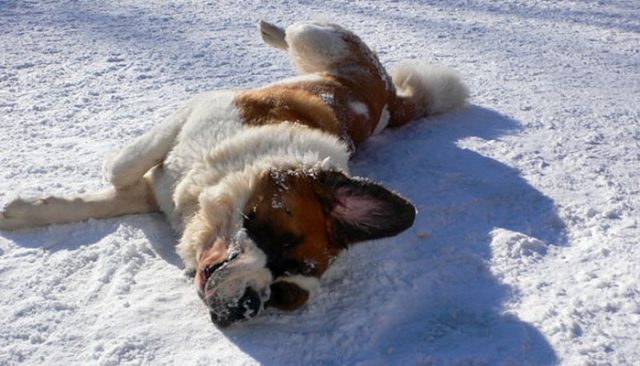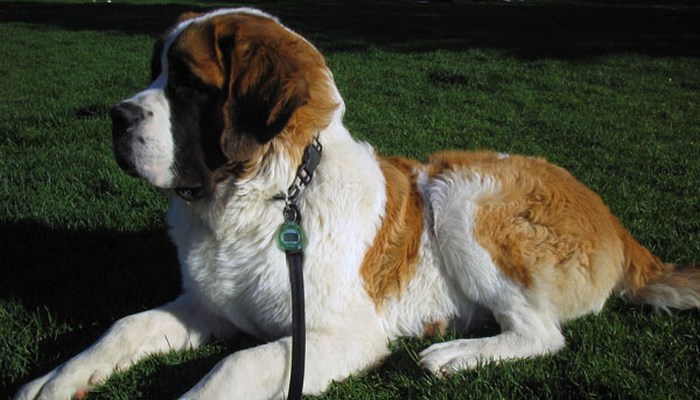
This furry and massive slobbering pooch has deeper loyalty than you can imagine, so much he will bare the arctic temperatures to save people buried in the snow. Meet the Saint Bernard. They were literally bred to rescue people in the Swiss and Italian Alps.
This breed's large stature and thick coat allows them to withstand temperatures far below zero. They were created by Monks and are first mentioned around 1707. Their ancestors were heroes as well. St. Bernard's are bred from Roman working dogs.
One Saint Bernard became famous for his heroic efforts. His name was Barry. He saved 40 to 100 lives during a period of many avalanches. He would have had shorter fur that wouldn’t freeze and make him heavy. It wasn’t until many of these rescue dogs were killed that they had to be bred with the long haired Newfoundland and their appearance changed.
What’s even more strange than a dog sniffing out and uncovering buried humans is that they teach each other. The monks never taught them to do this. The younger dogs learned from the older dogs. Darwin’s famous ‘The Dissent of Man’ mentions love and cooperation over 90 times but only mentions ‘survival of the fittest’ once or twice.
RELATED: How Dogs Help People: 5 Best Stories
The Saint Bernard seems quite docile and most people recognize it as the ‘Beethoven’ dog from the children’s movie where this breed became a household hero. In our domesticated lives it’s easy to forget that both dogs and humans once lived much more adventurous lives bearing the elements in search of resources and new frontiers.
In America, our own evolution has much more to do with dogs that most of us realize. The native Americans had dogs that herded animals, protected their camp and helped them hunt. Dogs are even a big part of mythology, teaching humans how to be a guardian and sacrifice for others.

But how does a mountain rescue dog fit into rural America? Their thick coat makes them sensitive to heat and they need a place with air conditioning at the least. Saint Bernard's are friendly and calm but not suited for apartment living as they can grow to be 260 pounds. These larger breeds can live anywhere from 8-10 years and truly become a part of the family.
Many people are opening to the idea of a wellness dog as a companion. The Saint Bernard is highly affectionate and child friendly but need to be socialized and trained to make sure they don’t become too territorial. As a wellness dog, since this breed comes from the mastiffs, he is gentle and watchful.
The Saint Bernard is now a companion dog and no longer used for rescues in the Alps. Helicopters and German Shepherds have replaced them but their loyalty is still to humans and they make excellent guard dogs and companions. If you can handle some drool and shedding, this dog might be your new best friend. Make sure to work with a certified breeder and avoid puppy mills if you decide to add a St. Bernard to your family.












